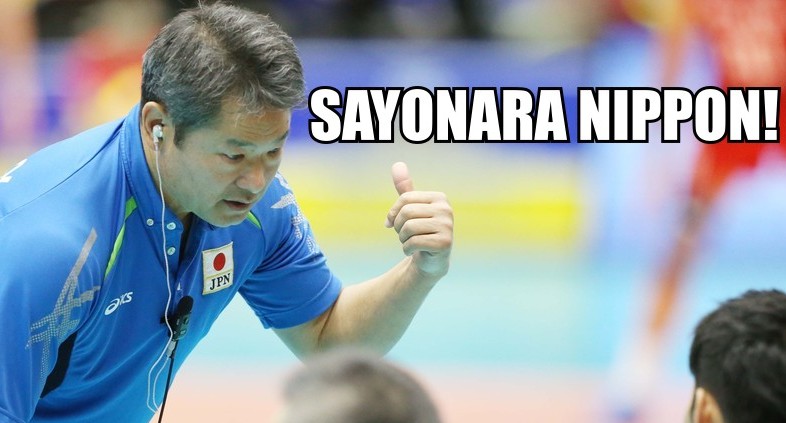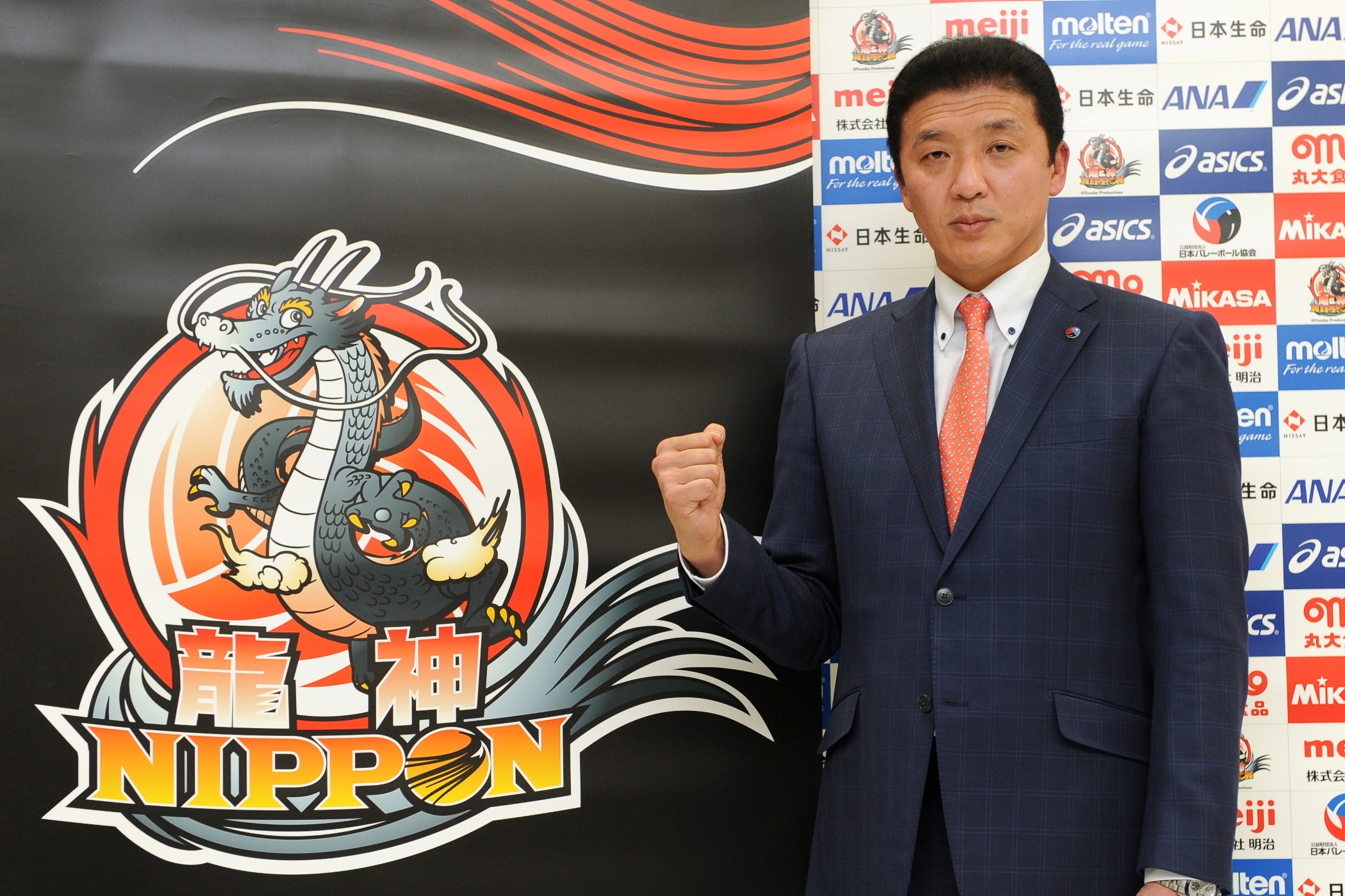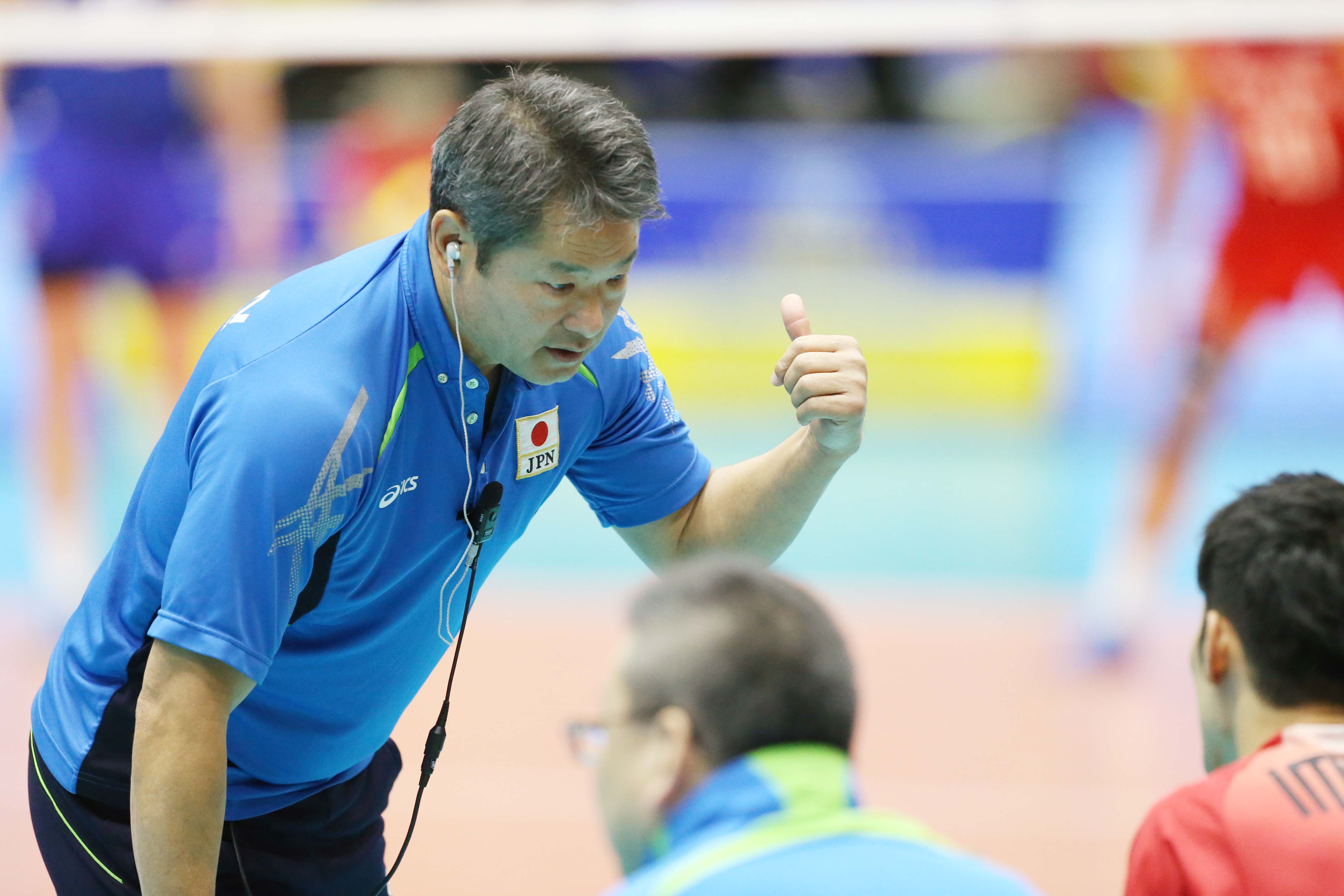We are quite surprised with this…
In case you didn’t know, the Japanese Volleyball Association has hired a new coach to replace Gary Sato.
Here’s an article released by the FIVB on Feb. 7th, 2014:
At a press conference held in Tokyo on Thursday, the Japan Volleyball Association (JVA) announced that Mr Masashi Nanbu will take over as coach of the Japan men’s national team.
Mr Nanbu replaces Gary Sato, who was hired in February 2013 and was the first foreign coach of a Japanese national volleyball team.
It is hoped that Nanbu will turn around the Japan men’s team to make it one of the leading volleyball powers in the Asian region. The country lost all five of its FIVB World Grand Champions Cup matches last year and finished last in the event for the first time ever. Japan also failed to qualify for the FIVB Volleyball Men’s World Championship Poland 2014 for the first time since 1960.
The new coach brings a wealth of experience to his new position having led the Panasonic Panthers between 2007 and 2013 to three V Premier League titles, three Emperor’s Cup All-Japan Championships and four Kurowashiki All-Japan Tournaments. In 2010, Mr. Nanbu led the team to the bronze medal in the Asian Men’s Club Volleyball Championship. And in 2013, the Panthers participated in the 2013 FIVB Men’s Club World Championship where they finished fifth.
At the press conference held on Thursday, Mr. Nanbu said, “I accepted the offer from JVA with preparedness, though I know we don’t have enough time for the 2016 Olympic Games in Rio de Janeiro. The goal of the Japan Men’s national team is to qualify for the 2016 Olympic Games. But we also have to bring up young players when looking at the 2020 Olympic Games in Tokyo. I understand that the situation surrounding the team is not optimistic, but I must let the team qualify for the 2016 Olympic Games. The goal of 2014 is to win the 17th Asian Games (Incheon, Korea) and make a comeback to the top of Asia. I’ll do my best for the team.”
Yuko Arakida, President of National Team’s Commission, also expressed his hopes for improvement in the men’s national team. “We want the team to finish above fifth place at the World Cup in 2015 held in Japan and to get the ticket for the 2016 Olympic Games at the Olympic Qualification Tournament in 2016. At the 2020 Olympic Games, we want to have some players who have experienced the Olympic Games.”
We hope the new coach will take Japan to the next level which previous coaches have failed to do. Coach Nanbu can develop the team with enough game to qualify for the 2016 Olympics in Brazil.
Knowing that Japan’s men’s volleyball team has only played in 1 one of the last Olympic Games, it won’t be easy an easy task at all.
Now, here’s Coach Sato’s side.
In an article released by japantimes.co.jp dated Feb. 7th, 2014:
Volleyball coach Sato speaks out after dismissal
You are given a big project and asked for a long-term commitment. And then you are ousted based on your short-term showing?
It just doesn’t sound right.
But that was apparently what happened between the Japan Volleyball Association and Gary Sato.
Late last month, Sato was fired by the JVA after a little less than a year since he took over as head coach for the men’s national team.
If head coaches and managers in top sports programs and leagues are to be judged solely by their win-loss records, the JVA certainly had a reason to let Sato go. Last year, his team dropped all five matches in the FIVB World Grand Champions Cup and failed to qualify for the 2014 world championships.
But remember this: The Japan’s men team had been awful internationally for years until Sato took the gig.
How bad? Japan had earned a a spot in the Olympics (2008 Beijing) just once in its last five attempts.
And obviously, transforming the noncompetitive squad, which once was an Olympic champion (in the 1972 Munich Games), into a global-level team could not be done in a few days or months.
It’s a project that should require years.
Sato, however, wasn’t given the time.
On Wednesday, the day Sato’s dismissal was revealed, he summarized his frustrations over being fired in an email to The Japan Times, saying that he “barely had a chance to scratch the surface” with the limited time he was given on the national team.
“I was really looking forward to building on what we started,” wrote Sato, whose contract for the national team was through the 2016 Rio de Janeiro Olympics. “In addition, the younger players coming in show lots of potential.
“The year of exposure to new things helped expand the awareness of volleyball to the players and coaches of ways to enhance what they are already doing.”
And he emphasized that success wouldn’t come so easily.
“The right set of circumstances have to come together at the right time and you do what you can to put them all together,” said Sato, who had been a long-time assistant for the United States men’s national team.
At an introductory news conference on Thursday for Masashi Nanbu, Japan’s new head coach, none of the JVA executives, including president Yuichiro Hamu and national team general managers Haruhito Kuwata and Yuko Arakida, would blame Sato for his lack of success in 2013.
They said that the Japanese players were not mature enough to match Sato’s coaching, including asking them to voluntarily think on the court, not just move how the coaches would instruct them to.
Fair enough.
But shouldn’t they have spotted issues like that way before? Before they hired Sato a year back?
The JVA executives didn’t give a clear answer to that when reporters pointed it out. Instead, they wound up saying that, despite what happened, Sato had immensely contributed to the national team by trying to install his “smart volleyball.”
“We hired (Sato) from the United States in order to change our men’s game, and it wasn’t a mistake,” Kuwata said. “His intelligent volleyball he’s left for us will be our treasure and we’d like to keep that in ourselves.”
Asked if the JVA felt any responsibility for having appointed someone it ended up thinking wasn’t the right person to lead the national team after all, Hamu said that it would depend on how it can take advantage of this experience for years to come.
“It’s a matter of when you take (the responsibility),” Hamu said. “We’ll just have to try to make it into (something) positive that flows out of this.”
Meanwhile, some national team players supported Sato and were upset about the JVA’s decision.
Wing spiker Yu Koshikawa summarized his emotions on this matter via his Twitter account Wednesday, saying, “What was the past year for?”
“(Sato) wasn’t given time for preparation, he wasn’t able to select players on his own, and they asked him to come up with results in half a year? It’s just too tough on Gary,” the JT Thunders player wrote. “And for what have we fought along with Gary?”
In spite of the harsh treatment by the JVA, Sato, a fourth-generation Japanese-American, cherished the time with the national team.
“To be part of the passion that is Japan volleyball is something I will treasure to the day I die,” he said. “I only wish I had more to contribute in my short time here. It has been my honor to work and meet the people of Japan and I wish them only the best.”
Arakida, a former Olympic gold medalist as a player, said that the new coach, Nanbu, wouldn’t be assessed in the near future, adding that nobody would want to take the job knowing he’s to be judged after a short time.
Yes, she got that right.
But seriously, are we supposed to believe that?
We wish Coach Sato was given more time to rebuild Team Japan. Let’s face it, their men’s volleyball is not the STRONGEST in the world anymore like what it used to be. In Asia alone, Japan can hardly beat Iran and Korea who are by the 2 Asian teams in the world right now.
Language barrier could’ve also been a big problem between Sato and his players.
One thing we’ve learned from Sato’s story is that it’s not easy being a coach.
Thoughts?
images: FIVB




2 Comments
Leave a Reply